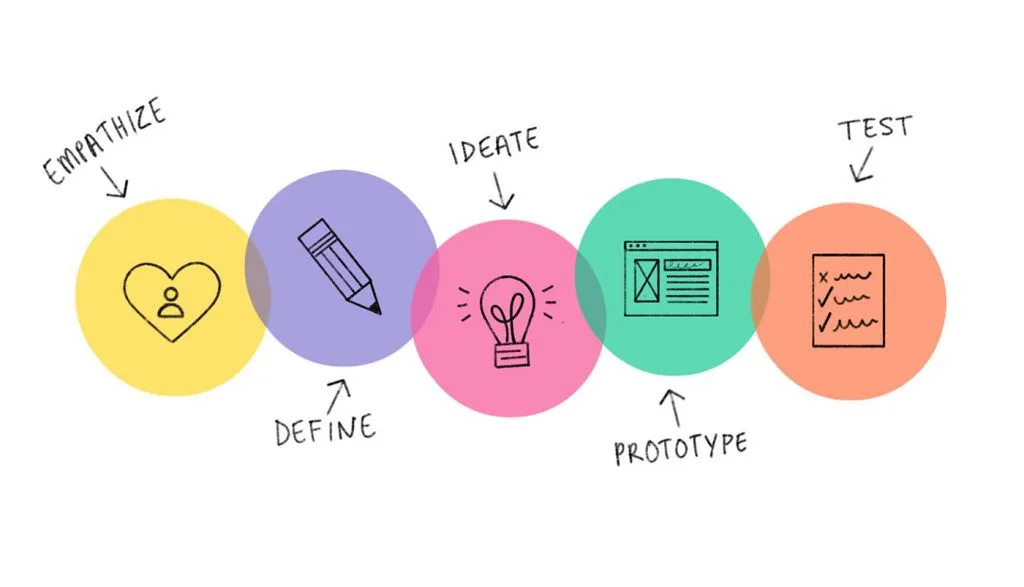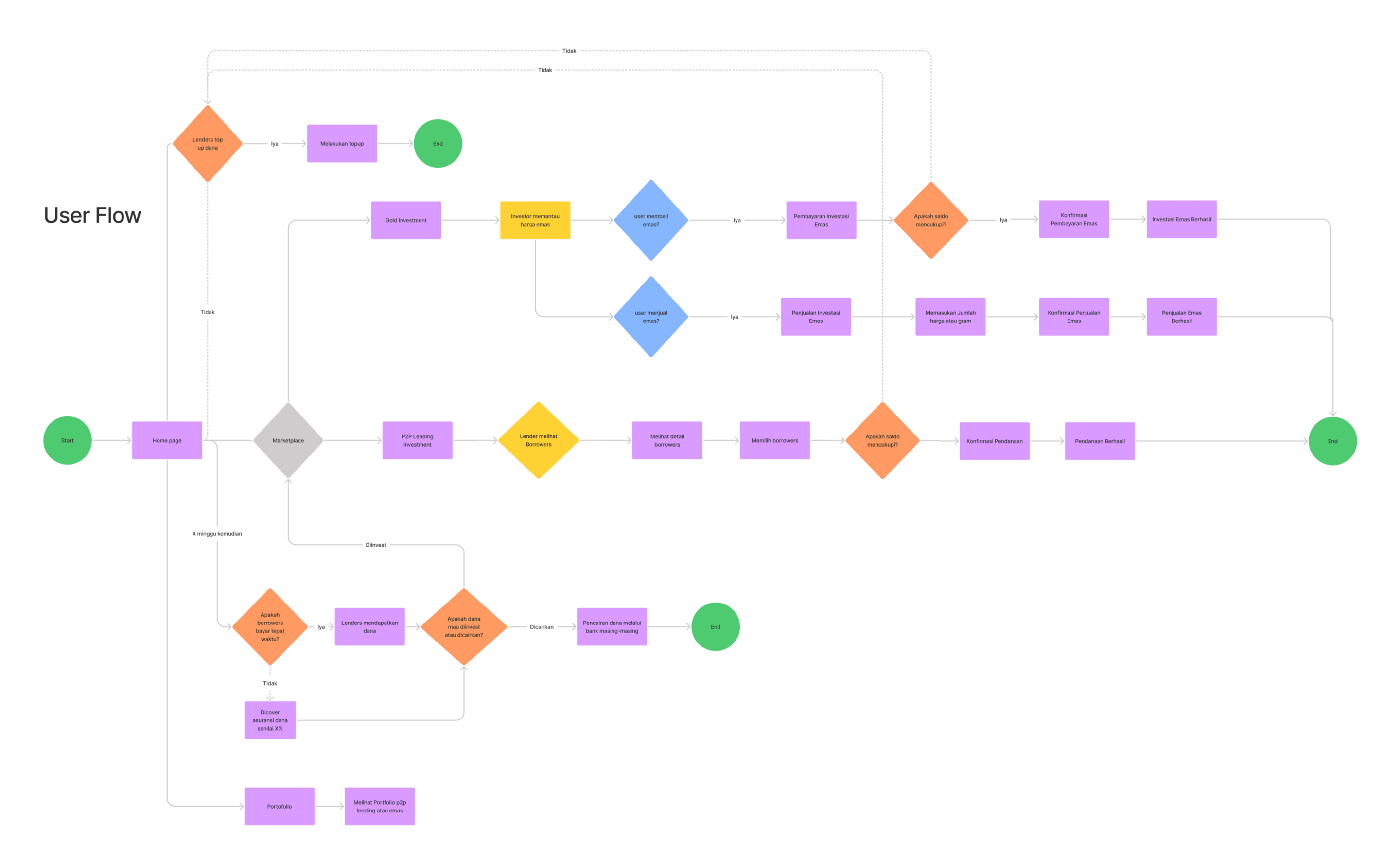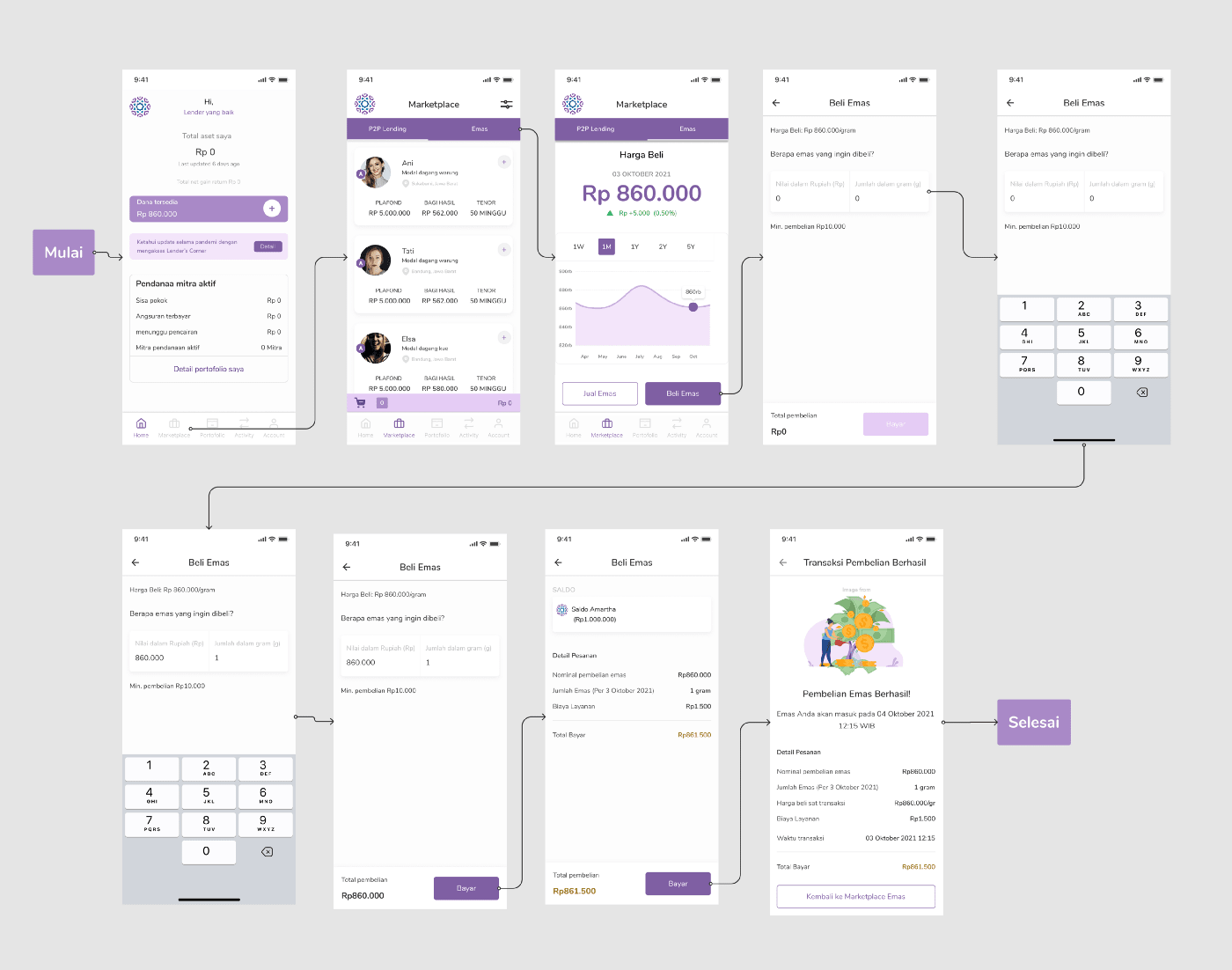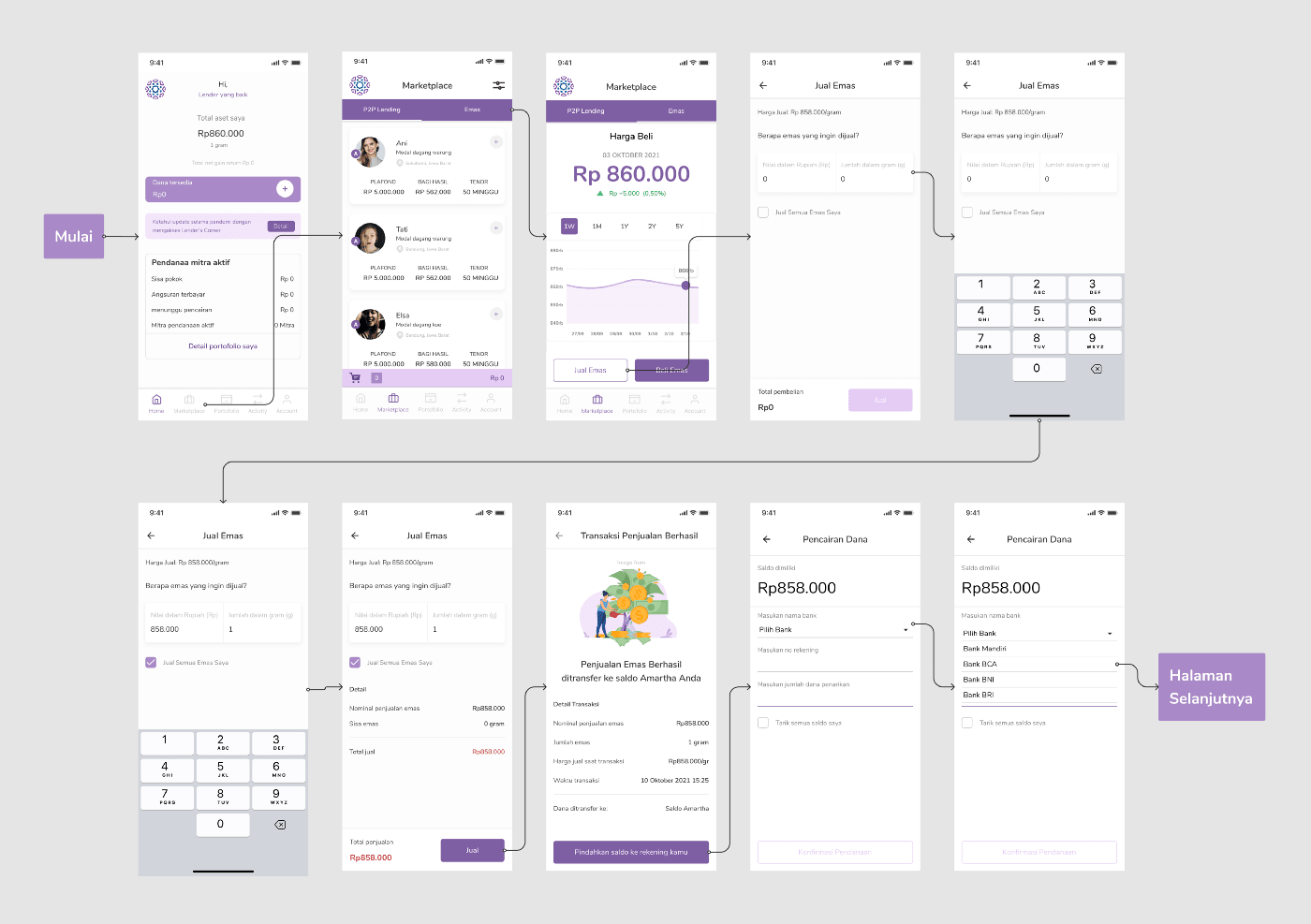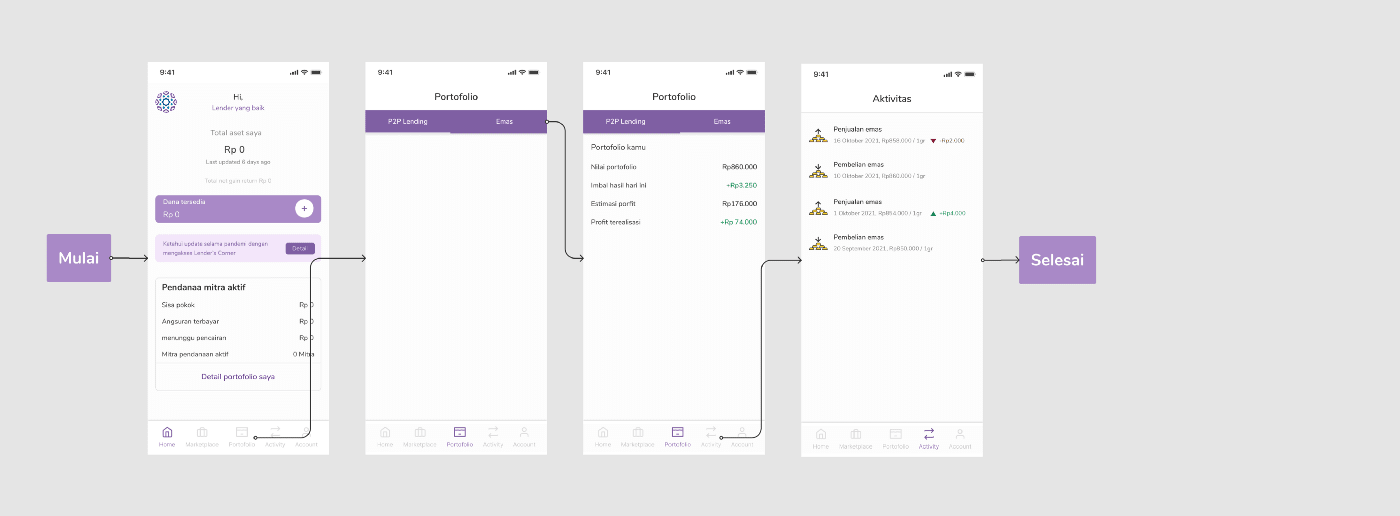
Gold Investment Amartha
Ridho Anandamal
Amartha is a financial technology (fintech) company that focuses on the P2P (peer-to-peer) lending investment business. Currently, they want to expand their business to gold investment.
This project is part of the UI/UX Training Program held by the Ministry of Communication and Information with Skilvul and Amartha as Challenge Partners. I am not employed or bound by a professional contract by Amartha.
Case Study Introduction
My friends and I, group 2 UI/UX class A11 received an assignment from Skilvul to create a new feature for the Amartha application, namely gold investment.
So I will explain our process of creating a gold investment feature from scratch to testing.
Design Thinking Method
The method we use is Design Thinking. There are 5 phases in doing design thinking empathize, define, ideate, prototype, and test.
Based on the results of design thinking we can conclude that:
- Users want to know the movement of buying and selling prices in real-time.
- Users are confused if gold and P2P investment reports are combined.
- After the gold is sold, the user wants to get the money as soon as possible.
- Users want to determine the price or amount of gold they want to buy.
- Transparency of additional costs when buying/selling.
- Users know the activity of selling and buying gold transactions.
- User Flow Design
- After knowing the results of design thinking, we create a user flow. For more details, see below.
User Flow Design
In designing the mockup, initially, we followed the design that has been implemented in the Amartha application.
After that, we changed the layout of the app without having to completely overhaul it. Moreover, the designs made will be implemented by the developer team. It can save time in application development.
I divided the design based on 3 tasks, namely: buying gold, selling gold, and accessing a portfolio.
Task 1 — Purchase Gold
Here are the results of the mockup task 1 — buying gold. Starting from the home page to the successful transaction notification page.
Task 2 — Gold Sale
Next up is task 2 — selling gold. Here there are 2 sub-tasks, namely: Sales of gold and withdrawal of money. Starting from the home page to the successful withdrawal notification page.
Task 3 — Access Portfolio
Once the user buys and sells gold. They want to see their transaction reports. This is where the portfolio function. We create a flow to access the portfolio.
Prototype Design Results
After making the design. We made a prototype based on the mockup above. Here's the access prototype for each task:
- Task 1 — Purchase Gold: https://s.id/amartha-task1
- Task 2 — Gold Sale: https://s.id/amartha-task2
- Task 3 — Access Portfolio: https://s.id/amartha-task3
Usability Testing Results
We do usability testing to test whether the design we have designed is appropriate. Here are the results:
- The SEQ value of each respondent (6.5 and 7) is above the minimum requirement (Passed).
- Feature differentiation uses tabbed components to improve readability.
- Using charts to help determine the price movement of buying and selling gold.
- The number of respondents is limited, namely only 2 people from the target of 5 people.
- Have no experience doing testing so there are some misses such as brief explanations to respondents.
Case Study Conclusion
- The new features of this gold investment product can improve users' finances and achieve their financial goals. Therefore, the flow of using this feature is made as easy and fun as possible with the aim of attracting as much user interest as possible, while simplifying the buying, and selling process and viewing portfolios and specific activities.
